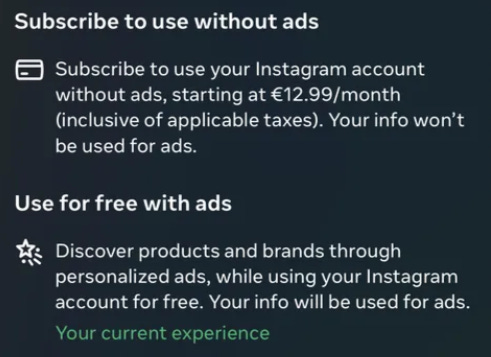Monopolies, disruption, and privacy
I always cheer for small businesses. Disruption is needed in all sectors at all times to avoid a controlled and expensive future.
TL;DR: Tried to summarize it in a few words, but without losing the essence I find it difficult. Read and spend time only if you like it.
The main reason is I don't like monopolies. Here there is a counter-argument because I use most of the free apps and all these free apps are the offerings of Big tech companies - monopolies in their respective games.
This blog I had in mind for several days now. I happened to read the Obsidian CEO’s post about supporting small businesses and paying for quality software1. It got me thinking. It is strange and not so strange that we are expecting most of the apps for free, right? I found it very difficult to digest when Telegram announced premium. From then features are mostly for paying customers. I still can't justify their pricing. But still, they are not invading our privacy and that’s a relief. And that matters big time these days.
The main reason I’m not paying for most of the software is most of the app’s free version is enough for me. I still have 14GB of space (out of 15) remaining in my 10+ year-old Gmail account. Because I organize everything and discard things I don't need.
Cloud storage is expensive and it is going to be more expensive in the coming years. Even though for Skiff, I’d love to pay.
I have a few points here to talk about.
API/Service providers vs Indie hackers
Monopolies - YouTube?
Paying for privacy?
Privacy Disclosure
API/Service providers vs Indie hackers
I read a few stories about OpenAI obsoleting indie hackers with their every major release. In a sense, it is true I guess. But I also read optimistic views about this topic. OpenAI is pushing forward and raising the bars and the bare minimum.
My view is that, when your product’s 90% is depending on a third party, you have no control. Ride the wave is the only option. And it includes cloud storage pricing, API pricing, and other commissions. When the profit margin is so low, you can't just increase the price whenever your providers increase the price. Customers might see this as not having any stability and this is one of the reasons people go with big techs. Maybe price is one of the factors they chose you.
Now some people are locking out customers without any option to move out or export. And it is a risky area. I’m concerned about this in the case of Framer. But let’s see. I have no major complaints about them right now, only just concerns.
Many indie hackers say this in their own words; “If your product is entirely dependent on other services, make money while you can and pivot when needed.”
In my opinion, people knowingly pay for a product to chat with PDF (or any other micro products) that it solves many nitty-gritty things that big techs won't provide. That’s the area where they won’t bat an eye (at least for now).
But there are some, more on next.
Monopolies
You see these are the creatures in the tech chain which rest at last. I mean companies like Google, Microsoft, Apple, Amazon and Meta. Their main customers are small to medium businesses and they nurture them first and when the time comes, they will attack their customer’s markets without any hesitation.
Currently, YouTube is a hot topic in the context of monopolies. They don't have a competition. Not even a single one and that gives them leverage to do anything. Now, this is a grey area of discussion. Many people might have different thoughts or counter thoughts on this.
They increased YouTube premium pricing in some areas (not affected my region yet) and also they are going full swing against ad blockers!
Now the interesting thing here is, some people are paying ad blockers to not pay YouTube premium 😂 maybe it is because of the overall value the ad blockers provide but I kinda see it as funny.
Now the people who support price increases say this - ad-free, music streaming, and additional features! I guess that is fair.
But with the movement against ad blockers pointing to a lot of things, free software is going to be very limited from now onwards. Big tech and their investors are eyeing for profit only now. And to do that, all loopholes must be closed and paywalled.
The cost of living is skyrocketing - that’s a no-objection statement. We have to include software pricing in the bookkeeping.
To avoid monopolies, say that I began to support small businesses (software), but the thing here is most of the small businesses are in one way or another controlled by big techs. So whenever they notice a loss in their businesses, they might increase pricing for their demanding products which are cloud and API. And that reflects on my pricing with the small businesses.
I believe it’s too complicated to destroy a monopoly as they are powerful in terms of politics and money. But OpenAI did something that many of us thought would never happen. They really shook Google’s search market share - this is completely my observation as I see people saying they don’t google anything and everything these days, but still, they use “Google”.
And Microsoft is like sprinkling OpenAI in their every product.
So my point here is, that if techs like ChatGPT can disrupt monopolies, then that’s what we need and bet on.
But it is very costly to self-do everything, as I said somewhere above. It is difficult. People need to think and decide which to choose. As a starter, I started to go to small shops near me for groceries. Right now if I calculate, I have a loss somewhere and there are no offers. But I really believe this will keep them in the play unless I want to dig my own grave for later.
Paying for privacy
When we use a platform we might see ads, right? Here’s where everything began. They will continuously tack us. Yet these social media giants launched ad-free subscription plans. Meta is saying that they will not use our info if we pay an amount monthly. That sentence is very weird. It feels kind of a threat. “If you don't pay us monthly we will look for everything you do online.”
This is what I really don’t like about the targeting ad model business. Suppose you paid for this plan, but it is still not clear that they won't track you. It is just saying that “your info won't be used for ads”. They already have all the info about us and I believe they will continuously collect info even if you pay. But they will temporarily pause the ads when you are on their plan. That’s all it is. It is a very weird practice but they will do anything to increase their profit. Because they eliminated the competition by acquiring Instagram a long time ago, remember?
Now on the other side, Substack did this differently.
Do we really need to pay for privacy? What do you think?
Privacy Disclosure
What I realized by reading a few terms and privacy policies is that some of them are purely ugly. If you ever read something entirely you will think twice before creating an account. The things they collect in the name of best serving you! Explore this to know more about Apple vs Meta: The Illusion of Privacy.
View this video to understand the point I’m making in a better way.
What I expect is all companies must practice the Skiff’s way of doing it. Reference the image below. They explained everything in plain English - that too was the first option!
My only request in this aspect is to introduce purchasing power parity and make it affordable to other developing countries.









